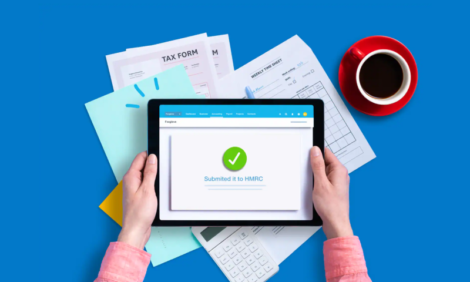
Our jargon-busting guide to Making Tax Digital for VAT

Making Tax Digital (MTD) for VAT is here, with the mandatory tax legislation kicking in from April 2022. Now, business owners charging VAT with a taxable turnover under £85k have to maintain financial records digitally and file VAT returns through approved software.
And while compliance is a relatively straightforward process, the water can be muddied by the number of increasingly abstract buzzwords and acronyms used to describe the legislation.
Small businesses have enough on their plates, from supply chain woes to the cost of living crisis, without needing a Rosetta Stone to understand how they can comply with MTD for VAT.
With this in mind, we’ve compiled a list of some of the common MTD-related terms to get you up to speed with the world of digital tax.
An ‘agent’
An ‘agent’ is an accountant or bookkeeper who can prepare and file a business’ VAT returns on their behalf. Agents can submit clients’ MTD for VAT returns directly to HMRC using MTD compatible software.
If you’re a business owner who’d like to enlist the help of an agent to file your MTD for VAT returns, our accountant directory has you covered.
HMRC-recognised MTD software
From April 2022, all VAT-registered businesses will need to keep digital records and submit VAT returns using HMRC-recognised MTD software. This can be an accounting software, product, or application that preserves and holds digital records while providing and receiving information from HMRC through an API (Application Programming Interface), a type of technology that allows for the exchange of data between two software programmes.
Cloud-based accounting software
Cloud-based accounting software or online accounting software is recommended to help businesses not only ensure MTD compliance, but to achieve a number of other benefits too.
This software is hosted on a remote server in the cloud, which means you can easily and securely access your financial data any time, anywhere. Xero is a cloud-based accounting software where you can easily keep digital records and submit your VAT returns directly to HMRC.
Digital links
A digital link is an exchange of data between two pieces of software, such as accounting software and HMRC’s systems. This is an alternative to manually copying and pasting the data between the two locations.
Digital records
To comply with MTD, businesses must store specific information in a digital format on a computer or in the cloud using HMRC-approved software. This means that businesses can no longer keep tax records solely in paper form. The digital version of this information is called a ‘digital record’.
Examples of digital records that businesses will need to store for MTD include the company name, address and VAT registration number.
MTD exemptions
While MTD is compulsory, there are some exemptions – for example, people who are older, have a disability, live in a remote location or businesses run by religious societies where their beliefs prevent them from using computers could be exempt from MTD compliance.
MTD exemptions are sometimes referred to as being ‘digitally exempt’ or ‘digitally excluded’.
MTD penalties
MTD penalties are HMRC’s new points-based system for late tax submissions and payments.
This will replace the current system in January 2023. Until then, penalties are calculated using a percentage of the outstanding VAT amount for the default period.
While some of the terminology around MTD may leave your head spinning, it’s important not to feel overwhelmed, and remember that help is always at hand from your accountant or bookkeeper. They can provide vital counsel around making this change and achieving the benefits it represents.
If you want a deeper dive into some of the buzzwords or phrases related to MTD, check out our extensive jargon buster, or if you want to learn more about MTD for VAT, turn to our other resources for small businesses.
The post Our jargon-busting guide to Making Tax Digital for VAT appeared first on Xero Blog.
Source: Xero Blog






